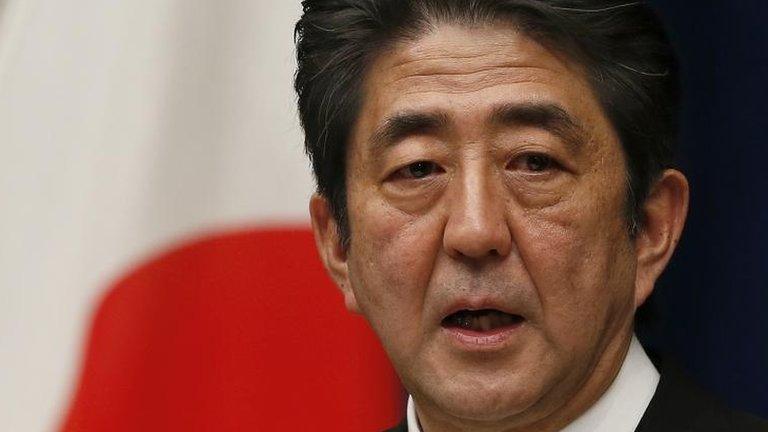Japanese economy minister Akira Amari quits over bribery claims
- Published
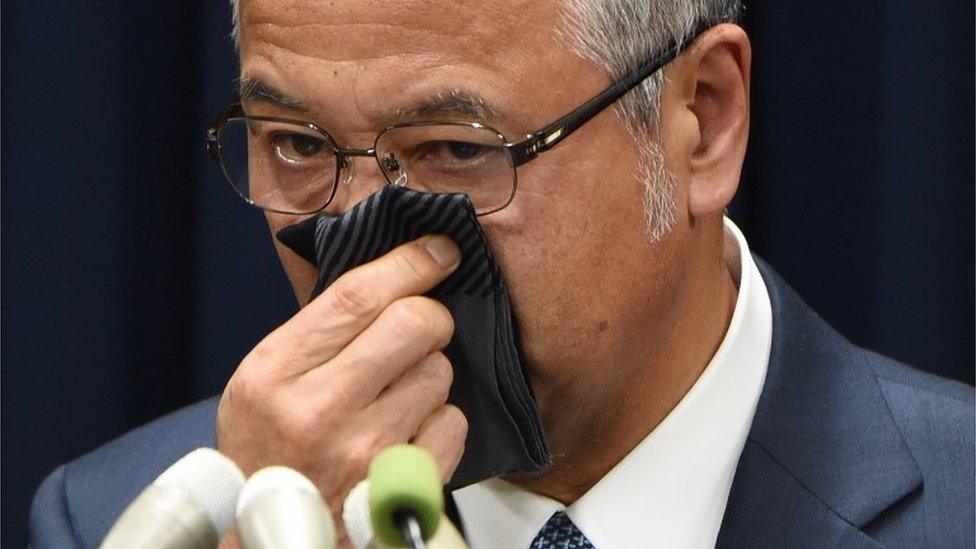
Mr Amari was regarded as the architect of Abenomics - PM Shinzo Abe's economic plan to pull Japan out of deflation
Japan's Economy Minister Akira Amari has said he is resigning amid corruption allegations.
Mr Amari unexpectedly made the announcement at a press conference in Tokyo on Thursday.
But he again denied personally receiving bribes from a construction company, as had been alleged by a Japanese magazine.
The development will be seen as a significant blow for Prime Minister Shinzo Abe.
Mr Amari, who has been minister of state for economic and fiscal policy since late 2012, has been widely described as one of Mr Abe's most trusted members of parliament.
As Japan's lead negotiator for the Trans Pacific Partnership (TPP) agreement, Mr Amari was expected to travel to New Zealand next week to sign the agreement.
He was also regarded as the architect of Abenomics - Mr Abe's plan to pull the world's third largest economy out of deflation.
"This is possibly the biggest scandal the Abe administration has faced," said the BBC's Mariko Oi.
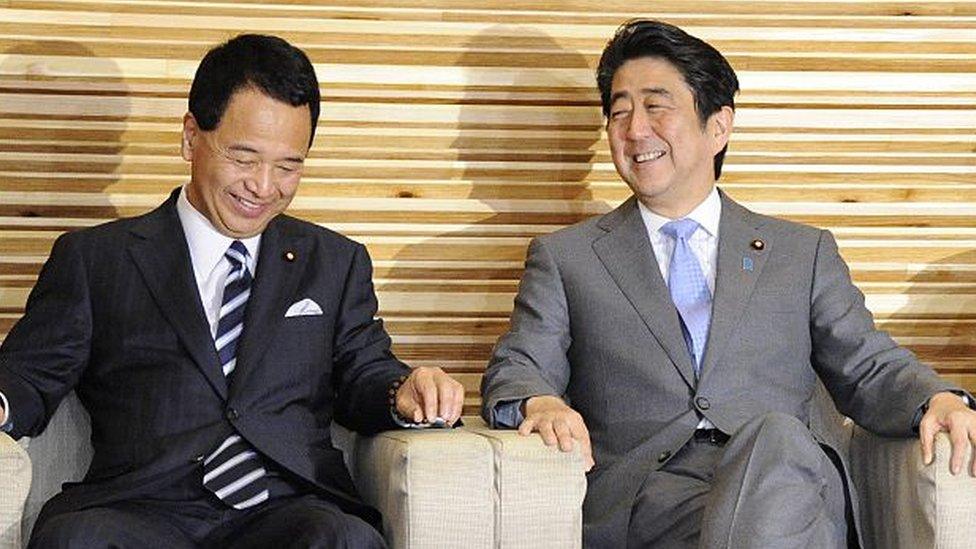
Mr Amari, left, has been described as one of Prime Minister Shinzo Abe's most trusted members of parliament
"His resignation will probably raise even more questions over Mr Abe's economic policies - or Abenomics," our correspondent added.
"It may also raise further opposition within Japan to the TPP."
Mr Amari will be replaced by Nobuteru Ishihara, formerly the country's environment minister.
'I'm no exception'
A local magazine had reported last week that Mr Amari and his aides were given money and gifts worth some 12m yen ($101,000; £70,500) by a construction company in return for some favours linked to land ownership.
Mr Amari said he did receive money which he wanted declared as a political donation, however, he said some of it was mishandled by his staff.
Japan's economy, which has been struggling with deflation for nearly two decades, avoided a technical recession in the three months to September last year.
"Japan is finally emerging from deflation," Mr Amari told the press conference, as reported by Reuters.
"We need to pass legislation through parliament for steps to beat deflation and create a strong economy as soon as possible.
"Anything that hampers this must be eliminated, and I'm no exception," Reuters reported him as saying.
"I, therefore, would like to resign as minister to take responsibility [for what my aide has done]," he said, according to Reuters.
Mr Amari is the fourth member of Mr Abe's cabinet to resign amid allegations of bribery, among other issues.
Mr Abe has apologised for the latest resignation.
- Published8 December 2015
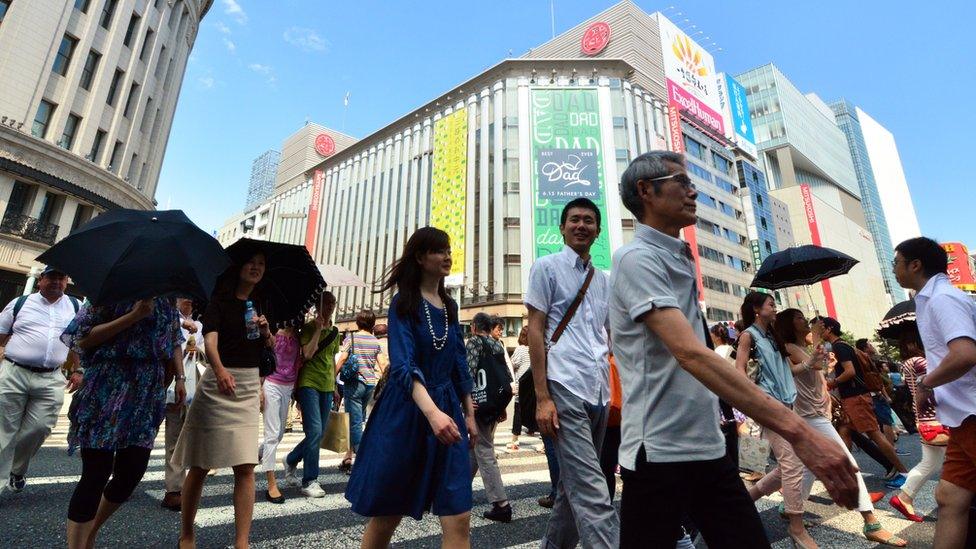
- Published16 November 2015

- Published6 November 2015
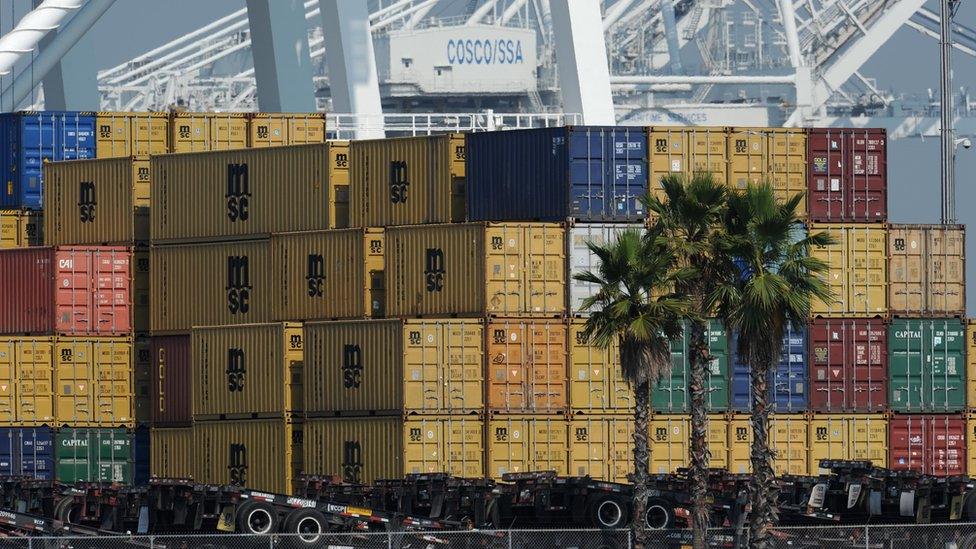
- Published26 December 2012
